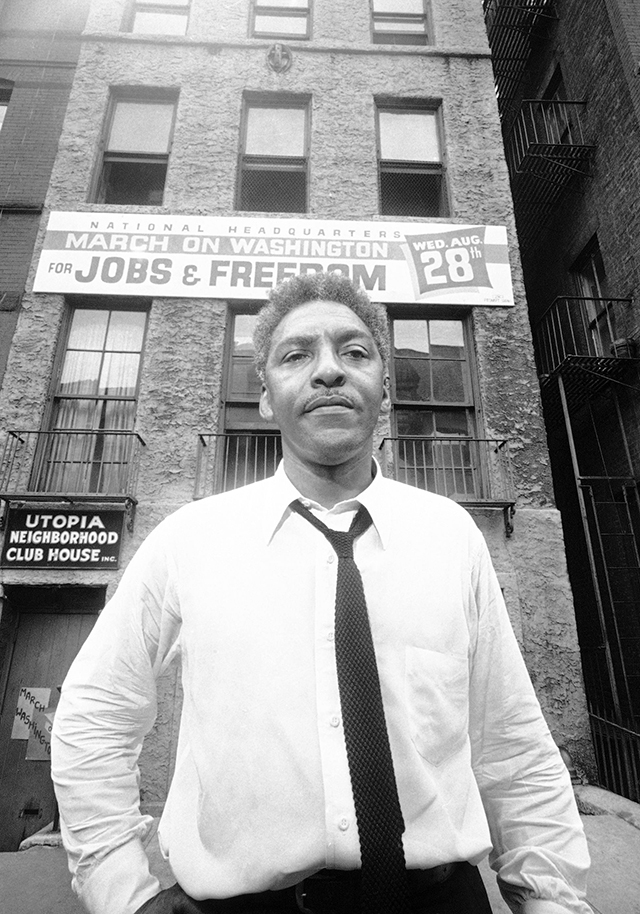Bayard Rustin
 Bayard Rustin poses in front of the National Headquarters of the March on Washington in Harlem (170 West 130th St.), August 1, 1963. (AP Photo) |
Although he was one of the most influential activists of the 20th century, Bayard Rustin was often relegated to behind-the-scenes roles in the civil rights movement because he was openly gay. He was the deputy director and chief organizer of the March on Washington, and is often credited with its success. In the run-up to the March, Rustin and his team were responsible for all the logistics, from deciding how much podium time each speaker would get and training the off-duty police officers and firefighters who served as marshalls to making sure there would be sufficient number of busses, portable toilets and sandwiches for the marchers.
Rustin grew up in Pennsylvania and was raised Quaker by his grandmother. As a young man, he briefly belonged to the Communist Party and was a conscientious objector during World War II. He worked for years as a deputy to A. Philip Randolph, and, at Randolph’s request, traveled to Montgomery to advise Martin Luther King, Jr., during the bus boycotts. Rustin is often credited as having convinced King to make his message one of nonviolence, at a time when the reverend was receiving death threats and had his home protected by armed supporters. It was at Randolph’s prompting that Rustin was chosen to be the lead organizer of the March on Washington. Rustin was a champion of numerous cause throughout his life. He protested on behalf of Japanese internees, draft resisters and chain-gang prisoners, and was also active in the labor, anti-nuclear and anti-apartheid movements. His final cause was gay rights. Toward the end of his life, in the 1980s, America began, gradually, to catch up with Rustin, who had been frank about his sexuality and proud of it for nearly his whole life — as one former colleague told The Washington Post, Rustin “never heard there was a closet.” When he passed away in 1987, he was remembered as a hero by both the African-American and LGBT civil rights movements. Watch Brother Outsider, a documentary film that premiered on PBS’s POV series. |












